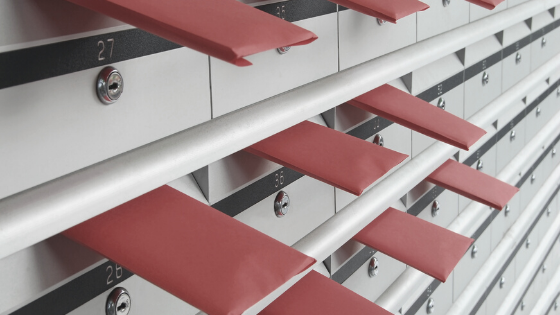
You may be aware that there has been some coverage regarding mail theft from strata buildings, resulting in stolen identities and theft from resident’s bank accounts.
You might also recall that this same issue was widely addressed in the media some 12 months ago.
It is said that strata buildings are targeted mainly because there is access to multiple letterboxes in the one place and the original letter box locks are flimsy or have not been upgraded from the master key system.
Statistics show an increase of mailbox theft of 37 percentage in North Sydney and up 45 percent in Hornsby.
Stolen mail and packages aren’t new problems for strata communities to be dealing with, but it’s the scale of the modern problem that requires our attention especially around the holiday period.
Targeted by criminals for identity crime, the mail rooms and doorsteps of strata communities have long been the target of fraudsters, and this year could be the ‘perfect storm’ for identity theft.
With online shopping and home deliveries taking off thanks to COVID-19, we’re concerned that communities nationwide need to up their game on security.
Common signs that your identity has been stolen are:
- calls from creditors, debt collectors, or solicitors
- new credit cards arriving
- unexpected denial of credit
- refusal of services such as mobile phone
- bills arriving for goods you didn’t order
- unfamiliar charges or bank withdrawals
If you witness suspicious activity, you should call the police immediately!
Consider this as a holiday security game plan:
Seek advice
If you have mailbox theft concerns, speak to your building manager or other residents who may have addressed similar security problems at another property and suggest ideas to enhance your mailbox security.
Upgrade your mailbox or lock
All apartment buildings should have mailboxes with sturdy locks. Flimsy locks can be pried open by screwdrivers and other tools.
If the committee wants to improve mailbox security, there are locks that are more difficult to pick. Some mailbox and lock experts also recommend locks that aren’t operated by a master key.
Invest in a security camera
Security cameras have proven to be a good tool in common property areas where mailboxes are located. Not only can it deter thieves, but CCTV can help police identify offenders.
Tip: If the owners corporation approves the installation of cameras, they should be aware of the New South Wales Surveillance Devices Act or any other legislation that could complicate the process.
You would be surprised how good of a deterrent a well-positioned and visible security camera is, that will record evidence if the package is taken.
Other protections in the community are swipe card readers and smart locks to mail rooms that ensure that only residents can enter.
Consider going paperless
Fraudsters can get personal information like your full name, date of birth, bank details, driver’s license and more from stealing mail.
To avoid this problem, you could consider going paperless. Many banks and other institutions offer this option. When going paperless is not an option and you need important products like bank cards mailed, consider leasing a post office box.
Collect your mail daily
If you rarely collect your mail and let it pile up, you won’t realise your mail has been stolen until a huge chunk of it is gone. Checking mail daily will mean there is less opportunity for thieves to steal.
Know your neighbours
A reason why fraudsters are targeting apartment buildings is that when there are multiple residents, they are less likely to know each other. If you know your neighbours, you can alert them to suspicious activity and vice versa.
Common sense processes
Various experts indicate that the simplest method to avoid mail and package theft is to have the items delivered to work instead of the home.
The core issue of course is having the package or mail sitting outside for extended period.
If delivering to work is not an option for you, no matter, alternatively you can try to ensure that a friend or family member can attend the home during the day or require that the package be signed for, meaning that a local post shop will store the item until you pick it up.


